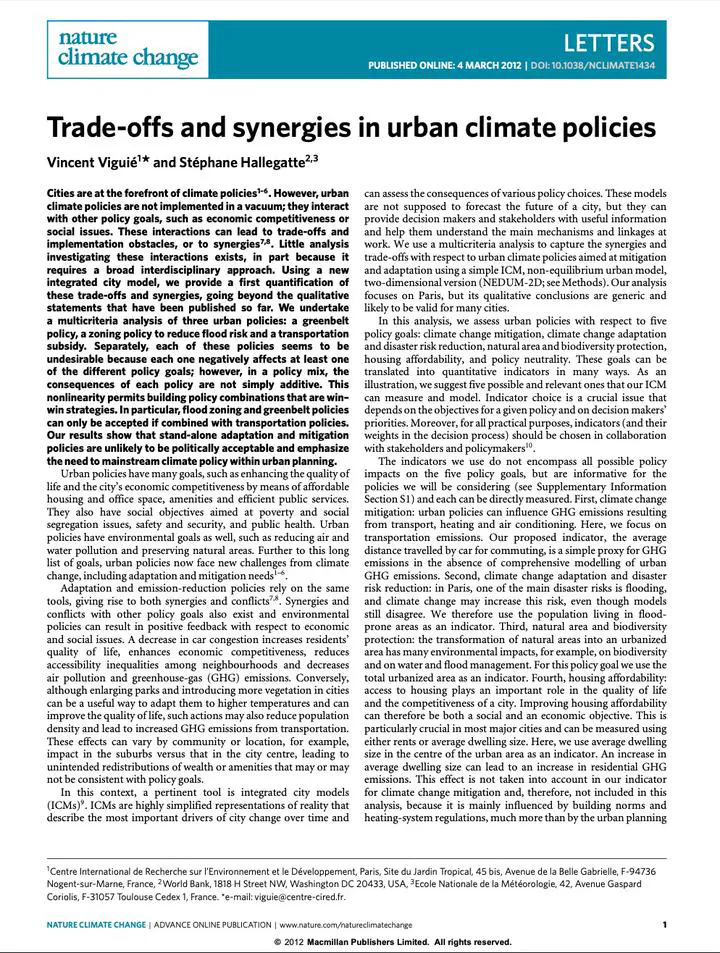Trade-Offs and Synergies in Urban Climate Policies

Abstract
Cities are at the forefront of climate policies. However, urban climate policies are not implemented in a vacuum; they interact with other policy goals, such as economic competitiveness or social issues. These interactions can lead to trade-offs and implementation obstacles, or to synergies. Little analysis investigating these interactions exists, in part because it requires a broad interdisciplinary approach. Using a new integrated city model, we provide a first quantification of these trade-offs and synergies, going beyond the qualitative statements that have been published so far. We undertake a multicriteria analysis of three urban policies: a greenbelt policy, a zoning policy to reduce flood risk and a transportation subsidy. Separately, each of these policies seems to be undesirable because each one negatively affects at least one of the different policy goals; however, in a policy mix, the consequences of each policy are not simply additive. This nonlinearity permits building policy combinations that are win– win strategies. In particular, flood zoning and greenbelt policies can only be accepted if combined with transportation policies. Our results show that stand-alone adaptation and mitigation policies are unlikely to be politically acceptable and emphasize the need to mainstream climate policy within urban planning.